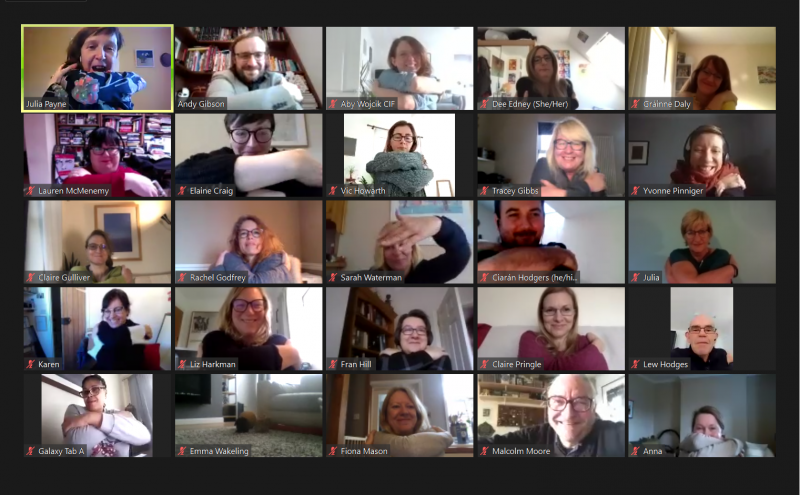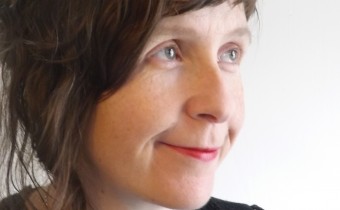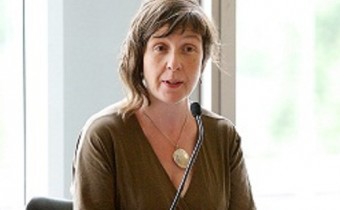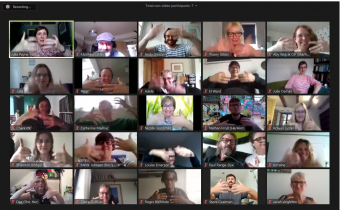Balance #6: Keeping burnout at bay: reclaiming life in the time of Coronovirus
Even during the ‘before’ times, a lack of work-life balance, financial risk and the ongoing pressure to do more with less meant incidences of burnout in the creative sector were on the up. Fast forward to life in the time of Coronovirus, and new pressures and frustrations mean more of us than ever are susceptible to burning out. So, as we approach a winter of potential discontent how can we turn down the heat on our emotions, master our moods and beat burn out?
That’s what Andy Gibson from Mindapples and I set out to explore in our November Balance talk, delivered in partnership with the brilliant Creative Industries Federation too. We’re so grateful that we were joined by so many curious and generous people from across the creative sector, all of whom shared lots of their own tips and insights, which you’ll find here too.
We covered a LOT of ground, including all of this…
- What burn out is, and how it differs from exhaustion
- How burn out is morphing into something new during the pandemic
- Decision fatigue and other contributing factors
- Moods and emotions – why emotional experiences can influence our long term moods, including depression and anxiety
- How to keep burn out at bay
- People power: how we can support each other and help keep our spirits up
Here’s some we made earlier
First up, here’s the video of the whole thing. It lasts around an hour, so grab a cuppa (and maybe a notebook and pen) and get ready to learn more about what exactly burn out is and loads of insights into how to keep it at bay…
Meanwhile, if you want the edited highlights and are a visual thinker, do check out Sarah Singleton’s graphic illustration of our conversation, created live (and at some speed!) as she listened in from her studio in Essex.
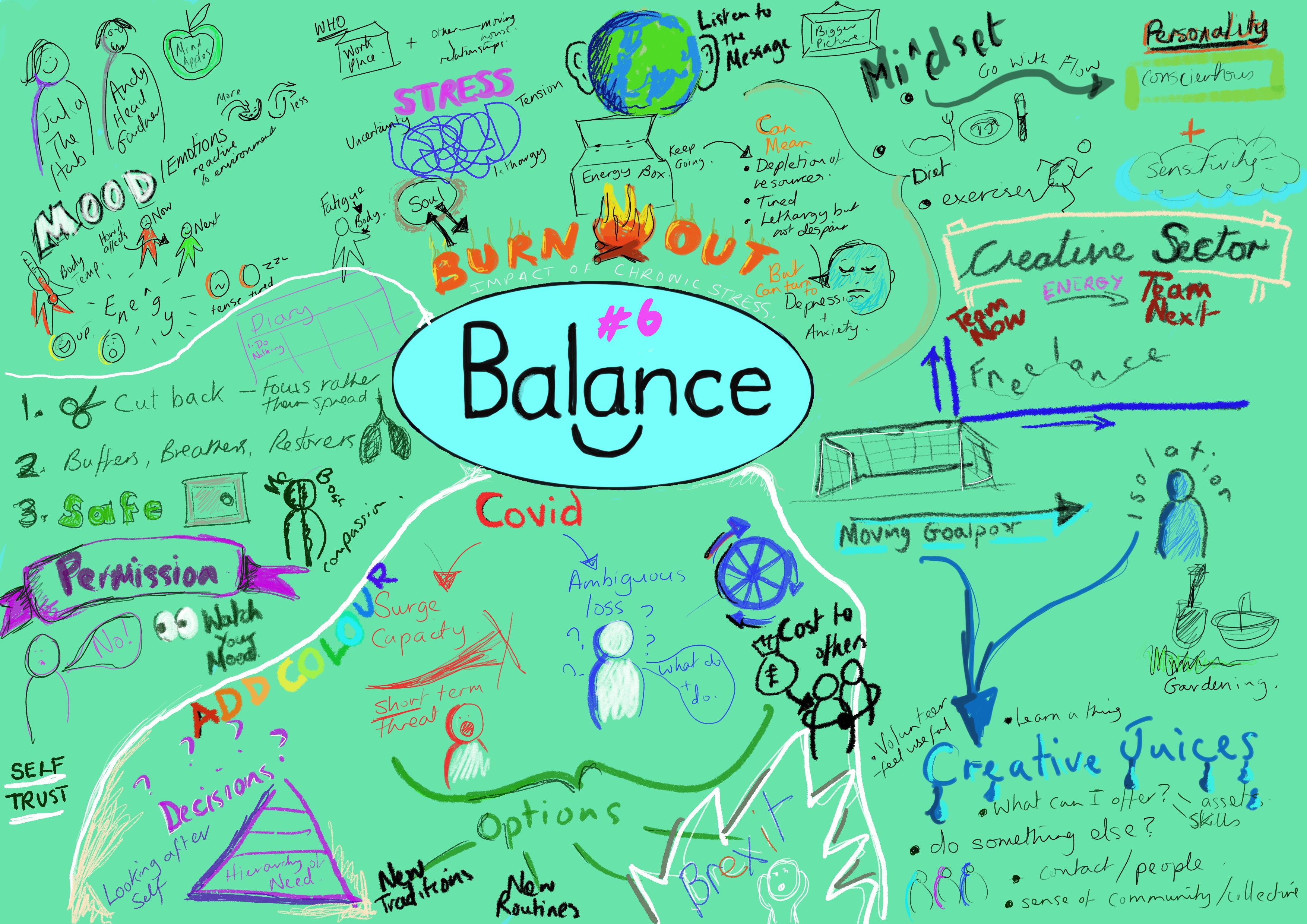
People’s top tips for keeping burn out at bay
One of the lovely things about our Balance talks is the sense of community that’s emerged around them, and how willing people are to share ideas with each other. This conversation was no different, and alongside what Andy and I were saying, the chat was full of people sharing tips that help them keep elements of burn out at bay. Here’s a brief round up of their top tips…
Taking a break & saying ‘no’
- Caryl said, “I didn’t write anything for 5 months as I was busy panicking about not having any work. Then took a month off and wrote several picture books after taking a break.” Lauren (also a writer), agreed, saying, “I’m a freelance writer. I’ve been trying to push through the burnout for years; finally took action and announced a sabbatical starting in December (stuff to finish first, sigh). Who knows how long it will take, but I finally need to put myself first.”
- I mentioned that I find it really useful to put ‘doing nothing’ or ‘taking a break’ in my diary, as it makes it ‘a thing to do’. That struck a chord with Vic, who said, “I do that! Write ‘do nothing’ across a whole day…It’s really important as a workaholic.”
- Cathy agreed with my comment about making sure I say no more, adding, “Saying no and doing less is key for introverts surviving in an extrovert world!”
- Tracey meanwhile, had a great recommendation: “Weighted blankets can help you find balance and calm”.
Getting creative
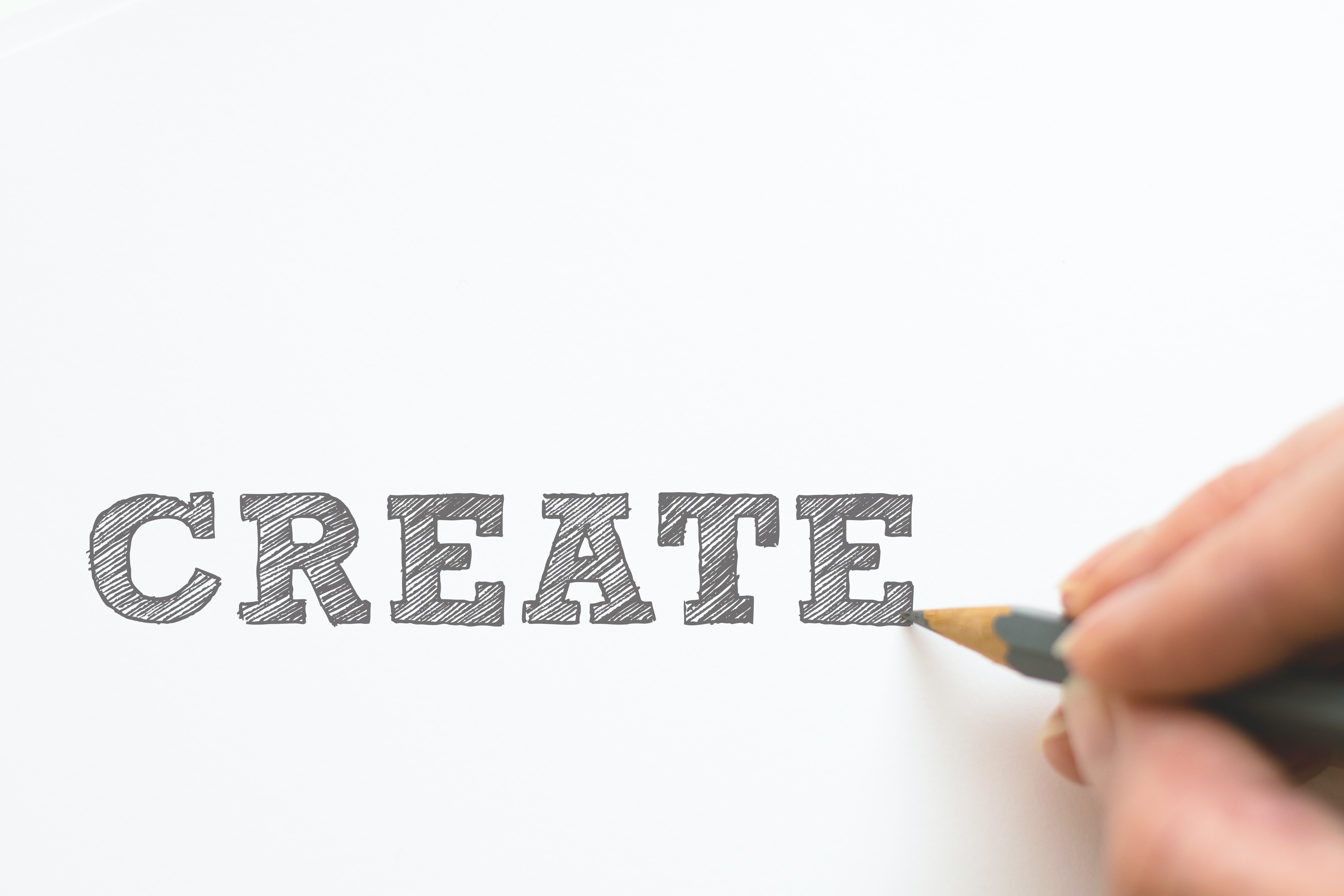 (Image by Lum3n from Pexels)
(Image by Lum3n from Pexels)
- Jane advocated doing something creative (that isn’t work), saying, “Creativity can also help us listen in, take stock, reflect and notice the signs of burnout”.
- As in other Balance talks, creative writing and journaling also got a shout from a couple of people. Jane added, “Finding creative ways to reflect and listen internally to how i’m feeling, what i need, is critical. My journal is a life saver.’ Aby agreed, commenting, “Emptying my head onto a page definitely helps!”
Exercising and getting outside
- Our Balance community seems to include some very keen gardeners, and again today Anna and Helen mentioned that gardening was a real tonic for them.
- Caryl advocated for exercise, saying, “For me, exercise is essential. It’s the only thing I do that’s not work and it helps free my creative brain.”
Getting a healthy perspective & giving yourself permission
- We talked a fair bit about the importance of getting a healthy perspective, and about how important giving yourself permission to slow down and take a break is. Jane said, “Permission is critical and then some”, while Caryl said, “It’s good to remember that this IS a major event we’re going through”.
- Vic agreed, saying, “100% – I’ve shifted from trying to ensure I have a fulfilling, interesting career that I enjoy and am good at, to being able to pay my bills and not lose my home. In some ways it’s really simplified things!”
Celebrate your achievements
- We’re so many of us hard task masters, and Jane summed this up when she said, “I’ve found I needed to explore what’s underneath my drive to do do do…and find a compassionate inner voice not a hard task master coach”.
- Claire came up with a great idea for switching up your thinking, and channeling your inner compassion rather than hard task master coach. Her advice? “Definitely worth writing a list of everything you have done, instead of focusing on what you haven’t”.
How people are connecting
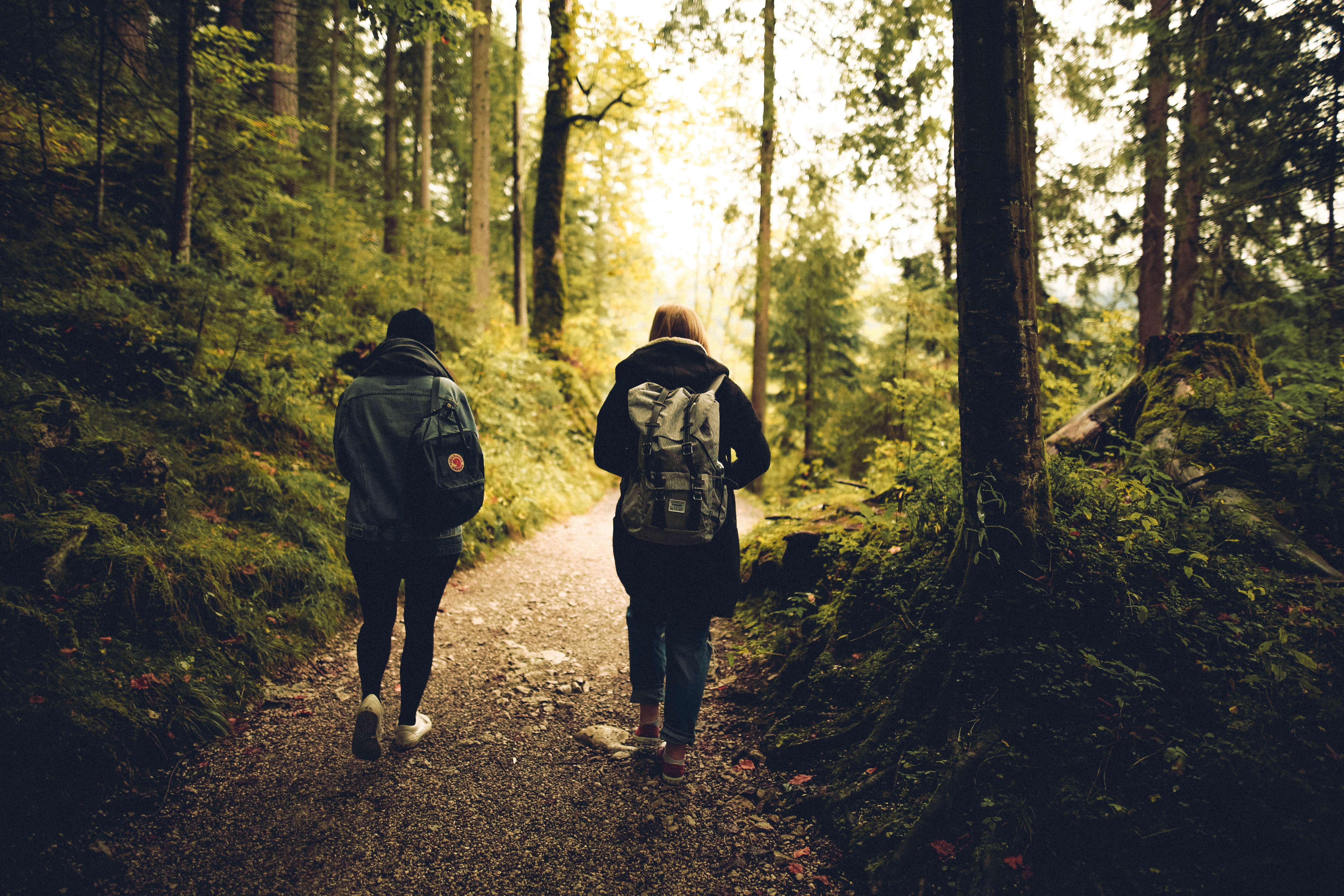 (Image by Tobi from Pexels)
(Image by Tobi from Pexels)
Having talked about how important staying connected with people is, as part of keeping burnout at bay, we asked folk to share how they’ve been doing that during lockdown. Hopefully one of these will spark an idea for you!
- Amanda mentioned something that I think is true for a lot of us, that it’s “harder to connect and create space for that when you’re the person ‘supporting’ others all the time”. However, she’s been keeping connected with trusted friends/ people who just know you are easiest… no need to explain why you’ve rung.”
- Caryl has been connecting via the great outdoors, by “going for walks / runs with friends (socially distanced of course)”.
- Similarly, Jane has been on “regular dog walks with a friend”.
- Anna too has found solace in meeting people outdoors: “I’m fortunate in that I live in a shared community of 12 households in one big building with a big garden – so always a neighbour to bump into. Lots of landscape walking and regular visits to some friendly horses in the woods – animals help!”
- She’s also been doing “online creative writing workshops with peers”.
- Linked to this, Julia’s been doing “- feels companionable and liksilent zooms with people – sitting and writing on our own together – feels companionable and like a trip to the library!”
- Elaine meanwhile has been going old school, “leaving voice notes instead of texts/whatsapps. There might not be time for a call but it’s nice to hear a voice rather than more words on a screen.”
- Fran’s similarly old school, saying, “I’ve been using the phone more. I’m on Zoom too much for non-social reasons and I’m finding the phone refreshing – and not as intense.”
- Dee conversely has (like lots of us) been using zoom a lot. She said, “Zoom seems the best way because at least I can see the other person”.
- Tracey’s been drawing energy from mentoring, saying, “Mentoring a fellow student at LIPA who is in his third year has made a big difference for me and connecting back to my own practice”.
- She also mentioned how she’s been “finding the right soundtrack for some of the zooms I host as people enter and seeing them smile”.
Finally some Working Remotely – Covid 19 principles
Thanks to Yvonne, who shared these principles she’d been sent by a friend a few months ago, which she says she’s found really useful…
- You are not “Working From Home”; you are “At your home, during a crisis, trying to work”.
- Your personal, physical, mental, and emotional health is far more important than anything else right now.
- You should not try to compensate for lost productivity by working longer hours.
- You will be kind to yourself and not judge how you are coping based on how you see others coping.
- You will be kind to others and not judge how they are coping based on how you are coping.
- Your team’s success will not be measured the same way it was when things were normal.
A shout out for a new film about anxiety, made by Pete Eliot
Reflecting how many of us feel, Pete said, “It’s consistent ups and downs for me. I’ve been trying to channel the challenges I’ve experienced this year into some positive creative work. I’ve just released a short film drama about an actor with anxiety. I wanted to make something that would help explain to others what we go through with anxiety and the internal battles.” It’s a lovely thing, and we thought you might like to see it, so here it is:
Like what (and who) you see and hear? Then come to our drop in session on 25 November, and sign up for news of our next Balance talk
If you like what you see on the video, and what comes next in this blog, please do think about coming along to our follow upBalance drop in session on Weds 25 November (9.30-10.30am). There’s no agenda, and whoever comes are the right people. Think of it as an opportunity to check in with people going through similar stuff to you, and a chance to share how you’re feeling with people you know also want to put protecting their mental health at the top of their to do list.
And if you fancy yet more still, please do sign up to our community list to find out about our next Balance talk, on 16 December, all about preparing for 2021, setting intentions and the power of habits.

